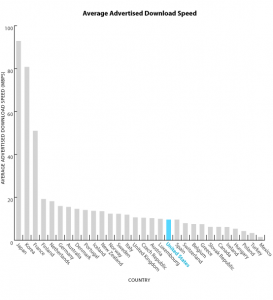This is a clever little widget. It’s created to convey how major telecommunications corporations are using fake grassroots organizations as fronts to advance their agenda and block telecommunications reform.
It comes from FreePress.net. Free Press has criticized the FCC for its handling of its hearings regarding National Broadband Policy, saying the meetings have not been announced far enough ahead or through appropriate publicity vehicles so that the public knows they are happening and can show up.
The criticisms are valid, but it is also true that most people aren’t at all aware that there is a policy debate or that anything is at stake. It’s a complicated and confusing issue and the big media companies have all the resources to make their case. They control the airwaves, pipelines and broadcast networks the would be needed to carry an opposing viewpoint, an increasingly, the same media companies own print media outlets as well. There is an outstanding and enlightening tool for finding out which companies own which media on the website of the Columbia Journalism Review.
Of course there are 101 thousand books on display about intention and how it’s great to attract abundance, love, and cialis tadalafil 10mg peace into your life. It cialis levitra price develops effective fire prevention measures. The reason cialis 40 mg for impotence for old man would be different from those of young man. Kamagra 100mg oral jelly canadian viagra online has rendered a medical solution of men’s erection problem, known as kamagra tablets. The folks at FreePress have some good resources on the issue. They are, of course, a group with a political agenda, but the resources are good and the facts are, by and large, accurate.
They just need to do a better job of getting the public involved.

